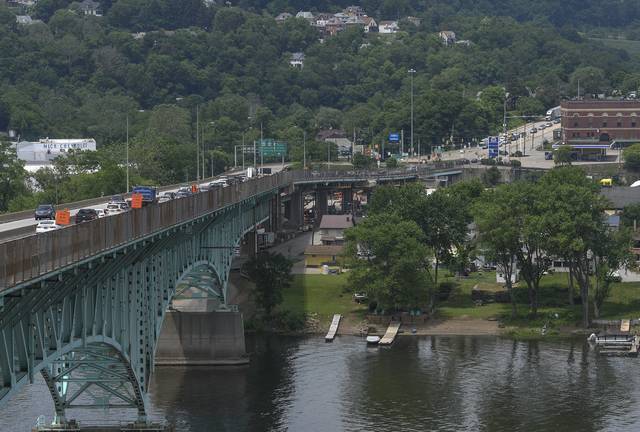The president and a group of senators have come together on a bipartisan deal on President Joe Biden’s “infrastructure” package. The president has already spelled out conditions under which he would veto the deal, highlighting how tentative the agreement may be. Either way, we all ought to be concerned that there’s far more attention to topline spending than on reforms that will actually improve infrastructure.
There’s no doubt that a number of states — including Pennsylvania — would benefit from smarter policies to improve roads, bridges and related physical infrastructure. According to one recent ranking, Pennsylvania roads are the 11th worst in the nation. That’s despite our state ranking sixth overall in capital outlays.
But of the $4 trillion in new spending initially sought by the White House, less than 5% would go to highways and bridges across the country. Even in this bipartisan deal, it’s unclear whether that percentage will increase — especially after accounting for the subsequent package the president is insisting on.
Proposed energy taxes for example, will lead to higher costs for consumers. And as part of an effort to make it harder to buy the gas- and diesel-powered cars and trucks millions of Americans depend on, the plan would spend hundreds of billions of dollars on electric vehicle subsidies to benefit wealthy people in California and New York. Like Gov. Tom Wolf’s efforts to join the Regional Greenhouse Gas Initiative without the Pennsylvania General Assembly, Biden also intends to implement an economically disastrous national cap-and trade program with few — if any — environmental benefits.
Rep. Conor Lamb is a member of the House Committee on Transportation and Infrastructure. As such, he’s well positioned to shape this critical legislation, and to make sure it addresses the priorities of people in Western Pennsylvania. Unfortunately, he’s falling for the “shovel-ready” project fallacy, claiming that “this funding can put people to work immediately, without delay.”
We’ve heard that promise before. It didn’t pan out then, and it won’t now.
Lamb won’t get a better opportunity to show his commitment to fiscal restraint and to serving the best interests of his district than by opposing this partisan wish list.
Considering the disorganized and wasteful approach Congress is taking toward transportation infrastructure, it’s no wonder our state is spending so much with so little to show for it. Instead of spending trillions and getting little in return, Lamb should champion reforms that give taxpayers more for their money.
Each year Pennsylvania spends billions of dollars of gas tax revenue collected by both the state and federal government, but hundreds of millions is diverted to non-highway uses. All told, only about 70% of this funding goes to maintaining and improving roads, bridges and related physical infrastructure. If lawmakers in Washington and Harrisburg want to improve that infrastructure, it starts by ensuring the money collected is spent for these purposes.
Any infrastructure plan should remove barriers to building roads and bridges, as well as to energy innovation. In addition to the Biden administration’s efforts to impose more red tape for energy production and infrastructure through its unilateral executive orders, Lamb has unfortunately sponsored an effort to rescind reforms to federal oil and gas regulations. This resolution will result in legal uncertainty and energy poverty in Pennsylvania, as well as fast track EPA regulations to effectively ban fracking and oil and gas production on private land in the Keystone State.
It’s also a mistake to allow Congress or the executive branch to steer funds to their own personal priorities. State and local governments are closer to the problem, and better positioned to determine where scarce dollars will do the most good. Instead of expanding earmarks, lawmakers should end the practice and return these decisions to states and localities.
Unnecessary federal regulations which inflate the cost of transportation projects are an additional problem. Davis-Bacon mandates, for example, were first imposed during the Great Depression, and limit the ability of taxpayers to get the most bang for the buck. If Washington is serious about fixing infrastructure, eliminating these unnecessary mandates will allow taxpayer dollars to accomplish more for less.
Regrettably, reforms like these are being ignored as elected officials race to increase spending, taxes, and debt. Lamb claims to be a voice for Pennsylvania — this bill is a perfect opportunity for him to live up to that promise by standing up to party bosses and slamming the brakes on this runaway train.
Emily Greene is grassroots director of operations of Americans for Prosperity-Pennsylvania.








